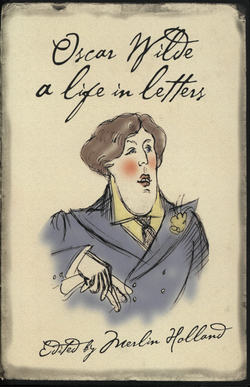Читать книгу Oscar Wilde: A Life in Letters - Оскар Уайльд, Merlin Holland, F. H. Cornish - Страница 76
To Mary Anderson
Оглавление23 March 1883 Paris
My dear Miss Anderson, The play was duly forwarded some days ago: I hope it arrived safe: I have no hesitation in saying that it is the masterpiece of all my literary work, the chef-d’oeuvre of my youth.
As regards the characters, the Duke is a type of the Renaissance noble: I felt that to have made him merely a common and vulgar villain would have been ‘banal’: he is a cynic, and a philosopher: he has no heart, and his vileness comes from his intellect: it is a very strong acting part as you see, and must be given to an experienced actor. To write a comedy one requires comedy merely, but to write a tragedy, tragedy is not sufficient: the strain of emotion on the audience must be lightened: they will not weep if you have not made them laugh: so I proceeded in the following fashion.
At the beginning of the play I desired merely to place the audience in full possession of the facts, of the foundation of the play: comedy would have been disturbing, so with the exception of Ascanio’s few prose speeches there is none: the action begins with the entrance of the Duke, whose comedy is bitter but comedy still, and the culmination of the act is the entrance of the Duchess: I have ended the act with the words
‘The Duchess of Padua’
which strike the keynote of the play, and make a very novel and striking effect.
The comedy of Act II is the Duke’s comedy, which is bitter, the citizens’, which is grotesque, and the Duchess’s comedy which is the comedy of Viola, and Rosalind; the comedy in which joy smiles through a mask of beauty.
Act III. Here there is no need of comedy: the act is short, quick, terrible: what we want is to impress the audience clearly with the two great speculations and problems of the play, the relations of Sin and Love: they must see that both Guido and the Duchess have rights on their side: Guido is cruel, and the Duchess has done wrong: but they represent great principles of Life and Love. The Duchess’s
Sure it is the guilty
Who being very wretched need love most:
Guido’s
There is no love where there is any sin:
and the great speech of the Duchess that follows give to the audience exactly what one wants to produce: intense emotion with a background of intellectual speculation. Which is right? That is what they will ask.
The comedy of Act IV is elaborate, and necessary to relieve the audience: you must not think it too long: believe me it is vitally necessary to make our audience merry after the horror in the corridor. I have selected, as you see, the style of comedy which never fails to raise laughter: the unconscious comedy of stupidity, missing the meaning of words, yet in all its solemn ignorance stumbling now and then on a real bit of truth.
Act V. The comedy of the soldiers: this relieves the audience from the strain of the trial: and is a bit of realism not I think put before into a dungeon scene.
Well, there is my comedy: and I hope that you have laughed over it as you read it: for myself, I am devoted to the ‘second citizen’ who seems to me an unconscious humorist of the highest order: he should get a great deal of fun out of his part. […]
Will you present my compliments to Mr and Mrs Griffin: and believe me that writing this play for you has been a task of pleasure, and a labour of love. I remain, dear Miss Anderson, most truly yours
OSCAR WILDE
